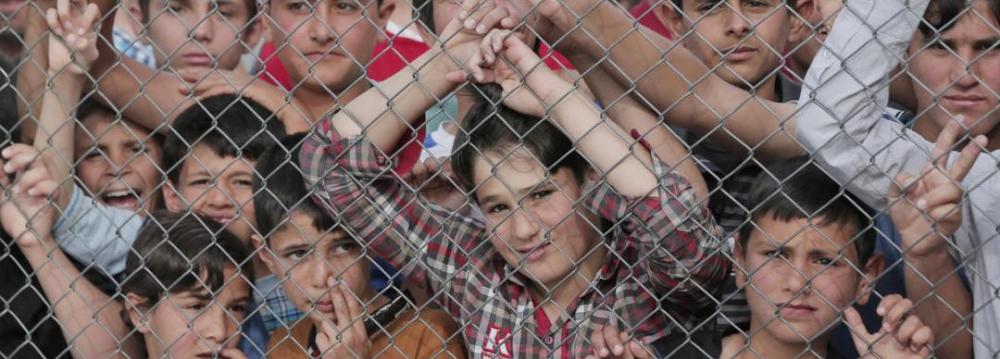Last month’s EU-Turkey deal on tackling the migrant flow has begun to produce results, a top EU official has said.
“We have seen a sharp reduction of the illegal migration flows,” European Council President Donald Tusk said.
In Turkey, he praised Ankara as “the best example in the world on how to treat refugees”, despite criticism by rights groups of the agreement.
Turkish Premier Ahmed Davutoglu reiterated the EU should now implement visa-free travel for Turks as part of the deal, BBC reported.
Davutoglu said his country had fulfilled its part of the agreement and “the issue of the visa waiver is vital for Turkey”.
Earlier on Saturday, Tusk, along with German Chancellor Angela Merkel, visited a migrant camp on the Turkish-Syrian border.
The goal of the March deal is to deter migrants, mainly Syrians and Iraqis, from making illegal crossings, mainly by sea, between Turkey and Greece, an EU member.
The UN refugee agency and other rights organizations have voiced concerns about the agreement under which such illegal migrants are transported to centers in Turkey.
At a joint news conference in the southern city of Gaziantep, Tusk said, “Our return operations are working in tandem with resettlements of Syrian nationals from Turkey to EU member states, demonstrating the desired shift from illegal to legal migration.”
Davutoglu said “the decrease (in numbers) is evidence that the mechanism that we have set up works”.
“Not a single Syrian refugee has been returned from Turkey unless it is of their free will,” the Turkish prime minister said.
Meanwhile, Merkel called for the establishment of special security zones on the Syrian side of the border, where refugees could find shelter.
“The more secure people can feel the less likely it is that they’ll have to leave their homeland. So this is why we attach great importance to that,” she said.
During the visit to the Nizip migrant camp, the EU officials met children and inspected living conditions. The camp is home to some 5,000 people.
Human rights groups criticized the visit as “sanitized”.
Under the agreement, migrants who have arrived illegally in Greece since 20 March are expected to be sent back to Turkey if they do not apply for asylum or if their claim is rejected.
Opponents question its legality and argue that Turkey is not a safe place to return people to.


